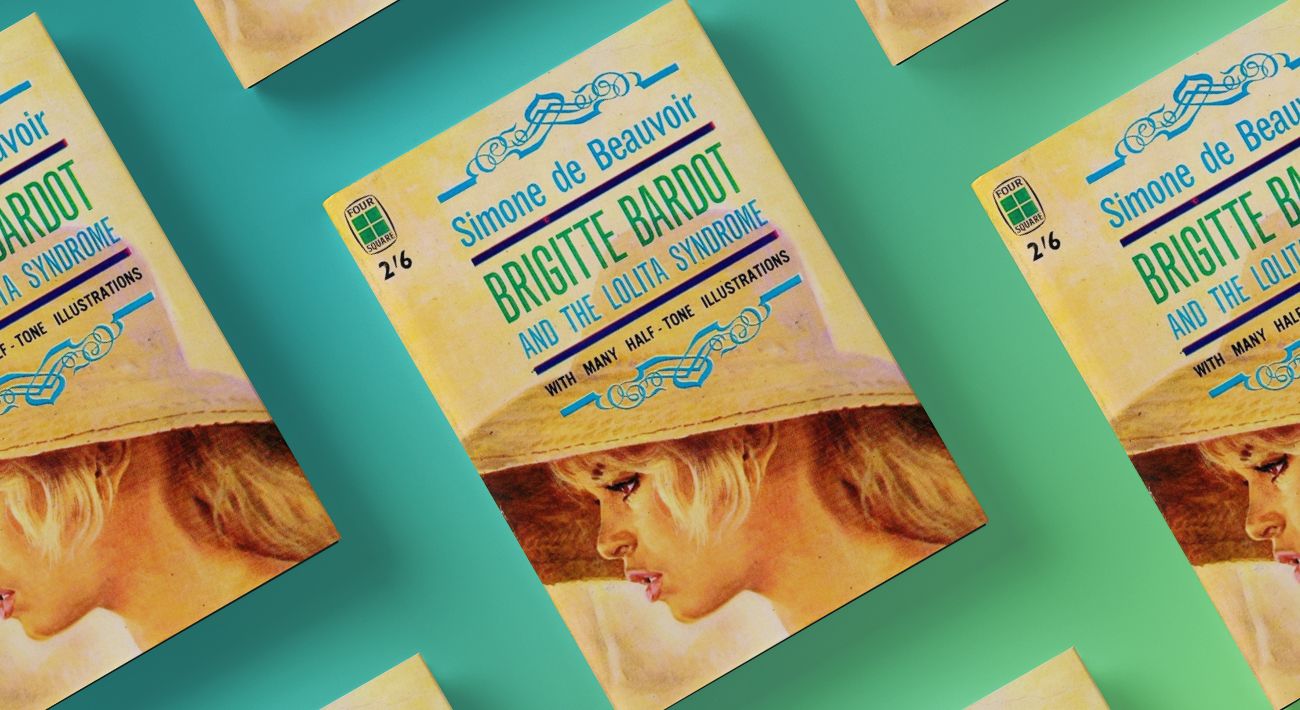Brigitte Bardot and the Lolita syndrome, by Simone de Beauvoir

"To be oneself, completely and unflinchingly, is the most radical act of rebellion."
What happens when a single figure challenges the ideals of beauty, morality, and femininity in her time? For those on a journey of self-discovery or engaged in personal transformation, Bardot’s image serves as both a challenge and an invitation to question traditional expectations - a theme deeply relevant to coaching and personal growth.
Written in 1959, during the height of Bardot’s fame, de Beauvoir’s essay dissects the phenomenon of Bardot’s raw, natural charm, which defied the polished perfection of her cinematic predecessors. de Beauvoir positions Bardot as a revolutionary figure embodying contradictions: innocence and sensuality, freedom and societal scorn. Her emergence challenged postwar ideals of modesty, creating a new archetype of femininity that sparked both fascination and moral outrage.
A symbol of transformation and disruption
de Beauvoir frames Bardot as a product of and rebellion against societal expectations. Unlike the meticulously curated allure of Greta Garbo or Marlene Dietrich, Bardot’s unfiltered sensuality seemed to embrace naturalism and autonomy, shaking the patriarchal foundation of traditional womanhood. Through what de Beauvoir terms the “Lolita Syndrome,” she highlights the era’s obsession with youth and innocence, underscoring the cultural unease surrounding Bardot’s unapologetic sensuality.
Bardot’s rise wasn’t without criticism. She faced condemnation for rejecting conventional roles, a struggle that mirrors the personal challenges of those who dare to defy societal norms today. Yet, her enduring legacy reminds us that transformation often requires discomfort, both for individuals and society.
A guide for personal and cultural growth
de Beauvoir’s analysis is as relevant today as it was in the 1950s. It offers timeless lessons for those navigating identity, autonomy, and cultural pressures. For individuals on a journey of self-discovery, Bardot’s story serves as an invitation to embrace authenticity, challenge norms, and redefine personal narratives.
- Rebellion as growth: Bardot’s defiance of societal expectations demonstrates the courage required for meaningful transformation.
- Authenticity in identity: Her allure lay in her unapologetic embrace of her natural self - an enduring lesson for those seeking self-confidence and empowerment.
- Cultural narratives and self-definition: de Beauvoir’s critique equips readers with the tools to understand how societal constructs influence identity and to break free from limiting beliefs.
A narrative of transformation
De Beauvoir positions Bardot’s journey as a reflection of the hero’s arc:
- Comfort: French women were once confined by expectations of modesty and restraint.
- Challenge: Bardot’s audacious authenticity confronted these norms, sparking both admiration and disregard.
- Victory: By embracing her individuality, Bardot redefined femininity and inspired generations to follow suit.
Timeless relevance
Bardot’s story resonates with modern struggles against societal pressures, especially in the portrayal of women in media. Her unapologetic authenticity serves as a powerful reminder of the value in challenging the status quo. Whether applied to personal growth, coaching journeys, or cultural critique, de Beauvoir’s insights remain a profound call to embrace individuality and redefine outdated narratives.
In Brigitte Bardot and the Lolita Syndrome, Simone de Beauvoir invites readers to see Bardot not just as a cultural icon but as a mirror reflecting societal discomfort with change. This essay is a must-read for anyone navigating the intersections of identity, freedom, and societal expectations - a timeless exploration of what it means to disrupt and transform.
Lessons in self-confidence and innovation
- Embrace authenticity: Bardot’s success stemmed from her unapologetic embrace of her natural self, a lesson for individuals seeking self-confidence and authenticity in their personal and professional lives.
- Challenge norms: Bardot’s rise illustrates the power of challenging societal expectations, a valuable reminder for those striving to innovate or disrupt traditional systems.
- Understand cultural dynamics: de Beauvoir’s analysis encourages a deeper understanding of how cultural archetypes influence perceptions of identity and worth.
Insights for cuiding clients
- Symbolism in transformation: Bardot’s journey highlights the importance of understanding the symbols and narratives that shape clients’ identities.
- Navigating societal pressures: Coaches can use Bardot’s story as a case study to help clients identify and resist external pressures, empowering them to define their own paths.
- Leveraging uniqueness: Bardot’s embrace of her individuality underscores the potential for leveraging personal authenticity as a tool for growth and connection.
Your own journey awaits
As de Beauvoir challenges readers to rethink societal norms, she offers a deeper invitation to reflect on their own lives. For those inspired by Bardot’s story, coaching offers the tools to take the next step.
Take the first step toward unlocking your potential - book a free introductory session with a coach today. It’s your opportunity to embrace change and foster growth.
Related Coaches
Join our newsletter to stay inspired & informed
Sign up for our newsletter and receive the latest coach updates, coaching news, expert advice, and exclusive offers straight to your inbox. Stay motivated and keep learning.